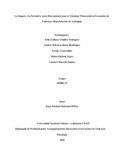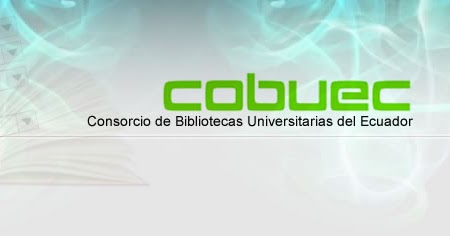Mostrar el registro sencillo del ítem
La Imagen y la Narrativa como Herramienta para el Abordaje Psicosocial en Escenarios de Violencia. Departamento de Antioquia
| dc.contributor.advisor | Bejarano Briñez,Jorge Enrique | |
| dc.coverage.spatial | cead_-_medellín | spa |
| dc.creator | Casarrubia, Yaedis | |
| dc.creator | Zapata Mejía,Carmen Marcela | |
| dc.creator | Ceballos Velásquez,Erika Liliana | |
| dc.creator | Galeano Rodríguez ,Sandra Milena | |
| dc.creator | López ,Gloria Patricia | |
| dc.date.accessioned | 2020-05-14T17:49:31Z | |
| dc.date.available | 2020-05-14T17:49:31Z | |
| dc.date.created | 2020-04-26 | |
| dc.identifier.uri | https://repository.unad.edu.co/handle/10596/33903 | |
| dc.description.abstract | Con el presente trabajo se pretende dar cuenta de la apropiación conceptual y metodológica del diplomado de profundización y acompañamiento psicosocial en escenarios de violencia dirigido por la universidad nacional abierta y a distancia UNAD, dentro del cual se profundiza la dinámica del conflicto armado en nuestro país, el cual ha afectado a un gran porcentaje de la población de manera directa, y de forma indirecta a todo el territorio Colombiano por más de cincuenta años, destruyendo vidas, sueños, ecosistemas enteros, salud física y mental, y un interminable número de elementos de importancia para la sociedad. la imagen y la narrativa expresan elementos subjetivos en primer momento percibidos como “negativos”, pero al mismo tiempo resiliencia, reconciliación, re dignificación y deseo de transformación tanto individual como comunitaria; se puede evidenciar como los psicólogos dan una mirada focalizada en aquellas víctimas y su ámbito psicosocial, analizando el mayor número de aspectos posibles generando un reconocimiento de los contextos específicos y un diagnóstico encaminado a la toma de decisiones pertinentes y eficientes que conduzca a solucionar las situaciones problémicas percibidas y reflejadas por la comunidad, y como ellos implementan acciones y estrategias tanto individuales como colectivas; Haciendo uso de la percepción, la empatía, la escucha y el diálogo, adentrándose en las subjetividades que emergen, las cuales dan cuenta de las múltiples historias no contadas directamente por las personas afectadas y que a su vez permite realizar una lectura más generalizada de las víctimas y de su propio entendimiento de las situaciones por las que atraviesan, lo cual facilita el quehacer del equipo psicosocial pues permite plantear propuestas de intervención ajustadas a la situación y enfocadas a dar solución a las necesidades más sentidas de las víctimas. Resaltar la importancia del acompañamiento psicosocial para que la atención sea integral, posibilitando que el proceso de reconstrucción social, personal y psicológico pueda efectuarse en el menor tiempo posible, con la menor cantidad de dificultades y traumas, encaminado a que las víctimas puedan adaptarse a sus nuevas realidades potenciando sus fortalezas y sus oportunidades, reconociéndose como gestor y actor directo de su bienestar, el de su familia y comunidad. | spa |
| dc.format | ||
| dc.title | La Imagen y la Narrativa como Herramienta para el Abordaje Psicosocial en Escenarios de Violencia. Departamento de Antioquia | |
| dc.type | Diplomado de profundización para grado | |
| dc.subject.keywords | Emergente Psicosocial | spa |
| dc.subject.keywords | Resiliencia | spa |
| dc.subject.keywords | Transformación | spa |
| dc.description.abstractenglish | The purpose of this document is to give an account of the conceptual and methodological appropriation of the diploma course on deepening and psychosocial support in scenarios of violence led by the open and remote national university UNAD, within which the dynamics of the armed conflict in our country, the which has affected a large percentage of the population directly and indirectly throughout the Colombian territory for more than fifty years, destroying lives, dreams, entire ecosystems, physical and mental health, and an endless number of elements of importance for society. the image and the narrative express subjective elements at first perceived as “negative”, but at the same time resilience, reconciliation, re-dignification and the desire for transformation, both individual and community; It can be seen how psychologists take a focused look at those victims and their psychosocial environment, analyzing as many aspects as possible, generating a recognition of specific contexts and a diagnosis aimed at making pertinent and efficient decisions that lead to solving situations. problems perceived and reflected by the community, and how they implement both individual and collective actions and strategies; Making use of perception, empathy, listening and dialogue, delving into the subjectivities that emerge, which account for the multiple stories not directly told by the people affected and which in turn allows a more generalized reading of the victims and their own understanding of the situations they are going through, which facilitates the work of the psychosocial team, since it allows us to propose intervention proposals tailored to the situation and focused on providing solutions to the victims' most felt needs. Highlight the importance of psychosocial support so that care is comprehensive, allowing the process of social, personal and psychological reconstruction to be carried out in the shortest possible time, with the least amount of difficulties and trauma, aimed at enabling victims to adapt to their new realities enhancing their strengths and opportunities, recognizing themselves as the manager and direct actor of their well-being, that of their family and community. | spa |
| dc.subject.category | Psicología | spa |















